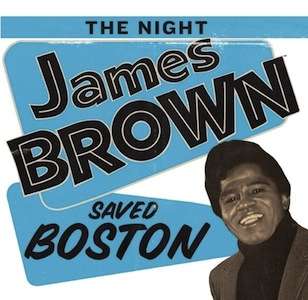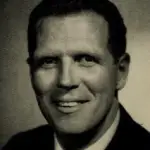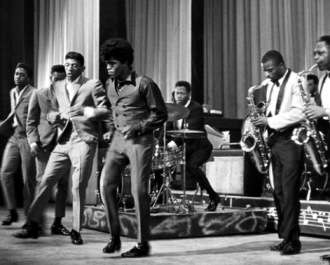James Brown, the hardest working man in show biz, worked extra hard on April 5, 1968 to keep Boston calm in the aftermath of Dr. Martin Luther King’s assassination.
King viewed Boston as his second home. He had earned his doctorate at Boston University and met his wife, Coretta Scott, during his graduate studies in the city. King had returned to Boston many times to preach his message of nonviolence, shared prosperity and racial harmony. He was assassinated on April 4, 1968, while supporting a sanitation workers’ strike in Memphis, Tenn.
In what became known as the Holy Week Uprising, riots broke out in more than 100 U.S. cities. Boston, though, remained peaceful because of the legendary James Brown concert at Boston Garden.
No-Go Zone
Minor violence broke out in North Dorchester and Roxbury immediately after the news broke of Dr. King’s death. Boston Mayor Kevin White feared it would get worse.
The scheduled concert would attract large numbers of young African-Americans, and city officials worried violence would break out if the concert were held.
Tom Atkins, a black city councilman, argued it wasn’t a good idea to bring thousands of disgruntled fans downtown demanding refunds at Boston Garden. So White decided to cancel the concert.
James Brown then arrived that afternoon from New York, only to find his show wouldn’t go on. The hardest working man in show business was not happy. By then White had come round to Atkins’ view that the show should go on. Someone – it may have been White aide Barney Frank – came up with an idea: How about televising the concert? That would keep young people at home in front of their TV sets.
But that didn’t make the Godfather of Soul happy, because he didn’t want to perform in a half-empty arena. He’d then get only a share of a small box office take.
So they made a deal. The city agreed to reimburse Brown for a night’s work.
No Uncle Vanya
Five hours before the concert was to start, Hartford Gunn, the WGBH station manager, picked up the phone. Kevin White was on the other line. Would WGBH televise the concert live? Gunn had no idea if it were even possible, but he said yes. A live James Brown concert would replace Laurence Olivier’s stage production of Uncle Vanya.
James Brown was an established star by then. At 34, he had a string of hits behind him – Papa’s Got a Brand New Bag, I Got You, It’s a Man’s Man’s Man’s World and a renowned album Live at the Apollo. A few months after the Boston concert, he would record Say It Loud – I’m Black and I’m Proud, the unofficial anthem of the Black Power movement.
White then called a news conference to announce the concert would be televised. Radio station WILD’s sound truck blared the news through African-American neighborhoods.
That evening, Councilman Tom Atkins stood in front of the 2,000 tense James Brown fans t the Garden and asked them to donate to the Martin Luther King trust fund.
Swinging Cat
As the councilman spoke, James Brown grabbed the microphone from him in mid-sentence. He then introduced Kevin White as ‘a swinging cat.’ It was a gracious introduction for someone who had to be told who James Brown was — and who kept calling him ‘Jim.’
The white mayor stood in front of a largely black audience. Dozens of police stood at attention. The band members, who feared they’d be shot on the way over, sat quietly at their instruments.

Martin Luther King at a 1964 press conference. Courtesy Library of Congress.
“We’re here to pay tribute to one of the greatest Americans, Dr. Martin Luther King,” White said. “Twenty four hours ago, Dr. King died for all of us, black and white. “ A few catcalls were drowned out by applause.
“We in Boston will honor Dr. King in peace,” White concluded with a flourish. At James Brown’s request, the audience gave the swinging white politician a round of applause.
James Brown Does It His Way
Brown launched into his show, starting, improbably, with a soul version of the Frank Sinatra hit, My Way. He later recalled:
Throughout the show, between songs, I talked about Dr. King and urged the people to stay calm. I announced a song title and tried to work the title into a little rap about Dr. King and the whole situation. I talked about my own life and where I’d come from. At one point, when I was reminiscing about Martin, I started to cry — a few tears rolling out, you know, nothing anybody could really see — but it was like it was all starting to really sing in what we lost. I pulled myself together — I thought that would do the most good — and went on with the show.
David Gates, a white, 21-year-old college dropout, was at the concert. “I went to Boston Garden, more or less on principle, and I didn’t get so much as a hostile look, going there, going home, or in the hall,” he wrote.
Toward the end of the show, a young fan jumped onto the stage. A police officer pushed him off. More fans jumped on stage, and more police rushed from the wings. It was a dangerous moment: The image of white police aggressively confronting young black people on television could spark the violence in Boston that raged across America.
James Brown Takes Control
James Brown took control. He held the police back. “Move on back. I’ll be all right. I’ll be fine,” he said.
The band went stone silent. More fans leaped onstage, mobbing the singer. “Wait a minute, wait a minute,” Brown repeated. “You make me look very bad, ‘cause I asked the po-lice to step back and you wouldn’t go down. Now that’s wrong, that’s wrong. You’re not being fair to yourself and me and all your race.”
The fans went back to their seats.
Back in the spotlight, James Brown said, “Now are we together, or are we ain’t?” He told the drummer, “Hit that thing, man,” and picked up where he left off with ‘Can’t stand it, can’t stand your love.’
The show was then rebroadcast, over and over, and thousands of angry young people stayed home.
The next day the local news media gave James Brown credit for keeping the peace. It was one of the things that meant most to him.
The Night James Brown Saved Boston was filmed as a documentary. You can watch the entire concert on youtube here.
With thanks to The Hardest Working Man: How James Brown Saved the Soul of America by James Sullivan. Feature image of James brown By Heinrich Klaffs – https://www.flickr.com/photos/heiner1947/4430588088/in/set-72157623613839496/, CC BY-SA 2.0, https://commons.wikimedia.org/w/index.php?curid=12303858. This story was updated in 2024.



4 comments
shared!
[…] a well-known story that James Brown calmed Boston after Martin Luther King’s assassination by letting WGBH-TV carry his Boston Garden performance live. Less well-known is the blues concert […]
[…] For the next decade and a half, WGBH-TV would broaden its programming to include a broadcast of James Brown's performance at Boston Garden, Evening at Pops, Eleanor Roosevelt's Prospects of Mankind and This Old […]
[…] Four years earlier, Kevin White persuaded James Brown to calm angry Bostonians. Read the amazing story here. […]
Comments are closed.